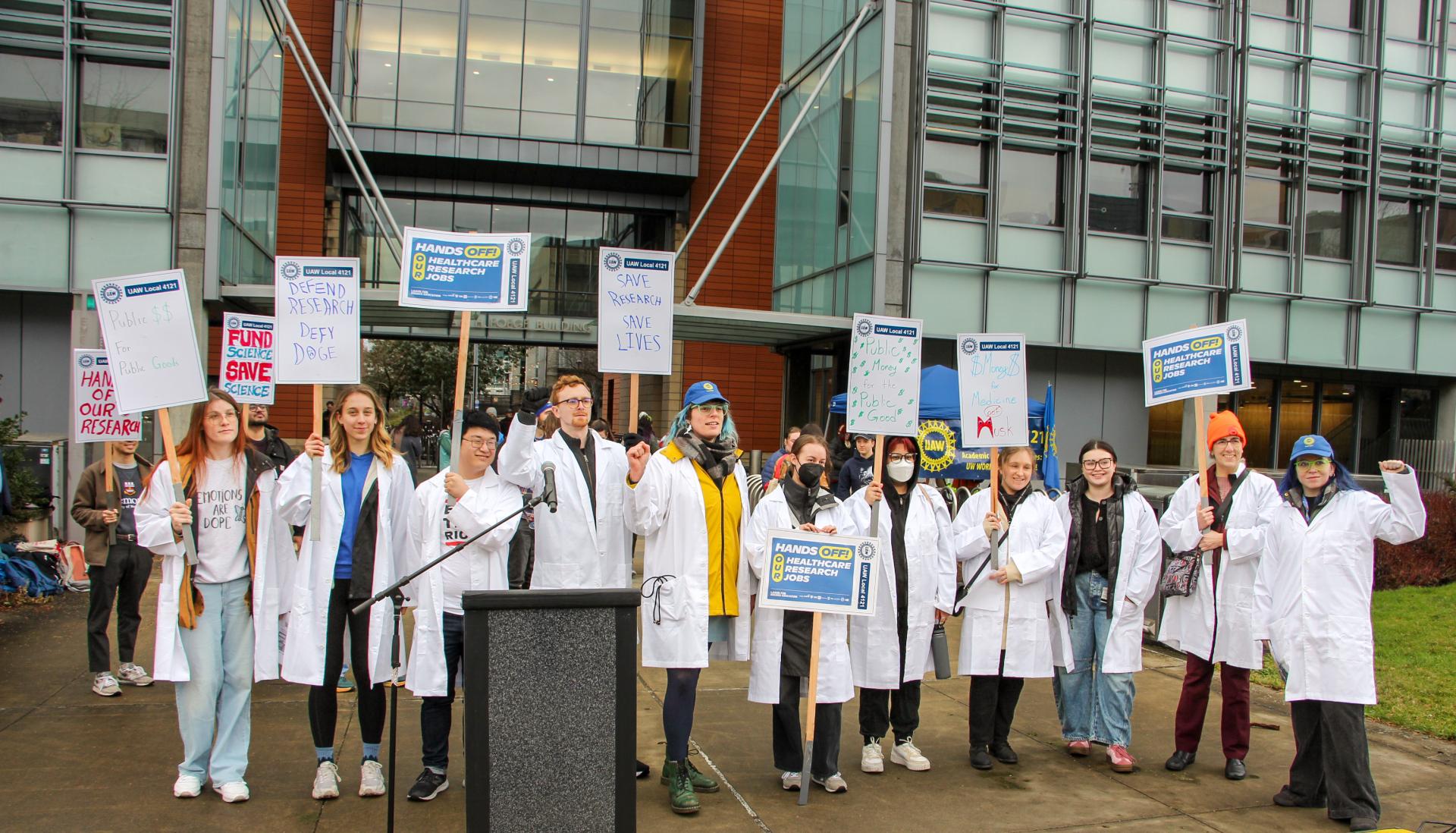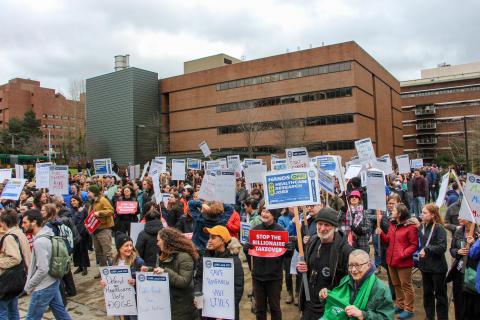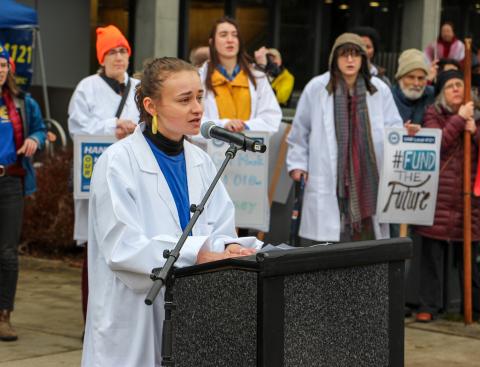Fund Don’t Freeze Rally: A National Day of Action

By April Rubio, Communications Coordinator for the Harry Bridges Center for Labor Studies.
Research is a vital foundation for many universities, including the University of Washington. However, recent federal funding freezes ordered by the Trump administration pose significant threats to healthcare, education, and higher education workers, leaving many uncertain about their continued research and job stability. These actions jeopardize lifesaving research on cancer, viral pandemics, heart disease, diabetes, and Alzheimer's, worsening the crisis in higher education. Last year, research conducted at the University of Washington received approximately $710 million in funding from the National Institute of Health (NIH) and $615 million from the National Science Foundation (NSF). Without these funds, patients and their families, depending on research for treatments and cures, would face significant challenges.
On Wednesday, February 19, academic workers nationwide came out to protest these issues and fight back against these attacks on education. In Seattle, hundreds of workers, students, and labor allies rallied at Portage Bay Vista on the UW Seattle campus to share their core message: “Hands off our healthcare, research, and jobs.” Behind this rally is the organization Labor for Higher Education (L4HE), a national coalition of unions representing workers in higher education. UAW 4121, one of the unions representing academic student workers on campus, collaborated with L4HE to organize this rally as a first step in their fight back.
UAW 4121 members Jennifer Harmon, a postdoctoral organizer for the Neurosurgery department, and Shirley Mathur, a Micro Biodata research assistant, kicked off the rally by leading the crowd in energetic chants. Congresswoman Pramila Jayapal and Washington State Labor Council, AFL-CIO President April Sims also participated alongside the workers. Many union members stepped up to share their work experiences.
“Hiring pauses are just the start. If we don’t work to stop Trump and Musk from gutting research in the U.S., we will quickly start to see an increase in the number of our members who are laid off as grants end, and many labs will struggle to obtain new funding with a shrinking budget,” said Sophie Hurwitz, a UAW 4121 member and PhD candidate in the Biochemistry department at UW. “We have already seen an introduction of a temporary layoff policy here at UW. These layoffs mean that our members and UW staff who have dedicated their lives to public science, improving healthcare, and developing cutting-edge technology will no longer be able to conduct research.”
Now a Molecular and Cellular Biology grad student at UW, Dustin Mulaney spoke about previously working at the NIH. “For three years, my co-workers and I fought to form a union. It was a long and difficult road, but eventually, we won a historic contract. We fought relentlessly to get a contract before 2025 because we knew that should the administration change, we would need more protections. And sure enough, we were right about that,” said Mulaney. “As NIH admin bend to illegal Trump executive orders blocking funding, pausing clinical trials, and dismantling DEI programs, it’s unionized scientific researchers who are legally challenging the changes imposed by this new administration.”
Next week, on February 25, Labor for Higher Education will host a follow-up rally in D.C. and a virtual viewing party option with a national phone bank. Learn more about their efforts at labor4highered.org/

